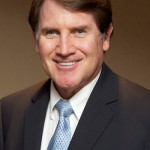The Senate recently passed an amendment to a larger health care bill that requires drug prices be disclosed in DTC Ads. The Durbin amendment was adopted with bipartisan support. It really just gives HHS a million dollars to study a way to require the disclosure. What is clear is this idea has strong support from President Trump, Congress, HHS Secretary Azar, and the American Medical Association. So, like it or not, the drug advertisers may be forced to add some price information to ads.

-Bob Ehrlich
On the surface, that list price disclosure seems reasonable. We see MSRP in car ads, so we know whether it is a premium or economy car. Not that we don’t know that already but it is not unreasonable. For cars, we know we will likely pay somewhat less than MSRP but we do know the range a Mercedes will cost us. Congress thinks consumers deserve to know the price of drugs they see advertised. To Congress that seems like it would help consumers decide if this advertised drug should be considered.
Drug pricing is not like car pricing. Consumers pay much less than the list price and sometimes pay nothing for the $50000 drug for cancer. Admittedly, drug pricing is a Byzantine process that confounds most of us. Each insurance company, PBM, and government payer negotiates prices. Each consumer depending on their insurance pays a different price no way near the list price. Sometimes the consumer would pay out of pocket more for their OTC cough medicine than the $50000 cancer drug.
So how should drug companies disclose drug prices? If the list price is not anywhere near what consumers pay, then how does disclosing it help them? It does not. It helps insurance companies in making DTC more difficult for drug companies to execute. The knowledgeable legislators know that if they force drug makers to talk about price that may discourage them from doing DTC Ads for expensive drugs. Drug makers advertising the $100000 cancer drug may decide that DTC is not worth trying to explain the complexities of drug pricing or face the barrage of criticism for having a sticker shock price.
I think this is the real reason for this amendment. Embarrassing drug companies they hope will put a chill on DTC for cancer drugs, biologics for arthritis, Crohn’s, and other new premium drugs. Of course, all drugs will face a guidance on how pricing needs to be discussed. Somehow FDA will make disclosure a time consuming step in a DTC ad. That will add 10-15 seconds to the ad and may make them difficult to execute. Their hope is to get drug companies to stop doing DTC.
So the good news is it will take FDA a while to study and draft guidance for disclosing price. This lag may allow the powerful advertising lobby to show how impractical this disclosure requirement will be. My guess is we may have some compromise that speaks in terms of ranges of price. That is something like “most patients will pay much less than the price listed depending on your insurance coverage.” Or, drug makers may be able to say “the average price paid by consumers is x.”
It may be illegal to require drug makers to disclose price under commercial free speech grounds. I am sure the advertising lobby will argue this inhibits commercial speech. They would have a strong case based on precedent.
My advice to the agencies is to be ready to deal with adding some price statement but I am sure it will be a few years before FDA can figure out how best to do this. They research everything they do and that will take a long time to study. DTC price disclosure sounds great but is just a bad idea that will not help patients.

